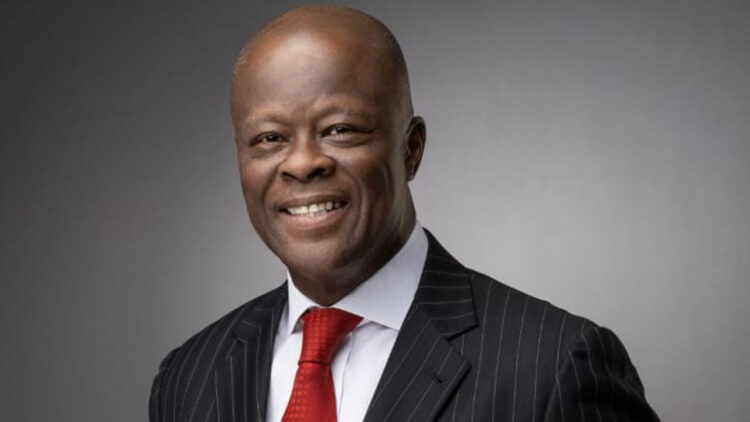The Minister of Finance and Coordinating Minister of the Economy, Mr. Olawale Edun, announced yesterday that allocations to states have risen by more than 111 percent.
Edun remarked, “States are now awash with cash,” emphasizing that the additional funds empower sub-national governments to enhance growth and improve service delivery.
Speaking at the 31st Nigerian Economic Summit (#NES31) in Abuja during a session titled “The Reform Imperative: Building a Prosperous and Inclusive Nigeria by 2030”, Edun identified exchange rate unification and the removal of fuel subsidies as key reforms. He explained that these measures have released about five percent of Nigeria’s GDP into the Federation Account.

The minister highlighted an agreement reached with the National Assembly to ensure timely budget execution and restore adherence to the normal fiscal calendar.
“No more extensions of budget into the next year, which has created so much confusion in the system. We have talked to the National Assembly and agreed to restore normalcy in that space,” Edun said.
He noted that consistent and disciplined budget implementation is crucial for transparency, effective project delivery, and credible public expenditure tracking. With Budgets 2024 and 2025 currently running simultaneously, there is potential for Budget 2025 to extend into 2026 due to its late commencement.
Regarding debt management, Edun revealed that the government is adopting a new borrowing strategy to reduce reliance on Eurobonds and other external loans.
“The government will make greater use of Sukuk, green bonds, and diaspora bonds instead of Eurobonds,” he said, adding that this approach would encourage domestic investment while aligning debt issuance with Nigeria’s sustainable development goals.
Edun also highlighted improvements in fiscal transparency, noting that full visibility of Federal Government accounts with the Central Bank of Nigeria (CBN) was only achieved on August 1 this year. He stressed the need to bring all federal funds into view, pointing out that significant government money still lies outside the CBN.

To enhance accountability, the minister announced the launch of a new federal billing system to track payments for goods and services, ensuring all transactions are traceable and accurately captured.
On inflation, Edun said government interventions focused on strategic fiscal policy adjustments and smarter spending priorities.
DMO: Revenue Generation More Important Than Debt Size
Director-General of the Debt Management Office (DMO), Ms. Patience Oniha, stated that Nigeria’s public debt remains sustainable, emphasizing that revenue generation, rather than debt accumulation, is the real challenge.
“When people talk about Nigeria’s debt-to-GDP ratio, they often forget that the international benchmark for countries like ours is about 70 percent. At 40 percent, Nigeria remains below that threshold,” Oniha explained.
She added that the critical concern is the debt service-to-revenue ratio, which determines the portion of national income used to service debt.
“If a large portion of revenue goes to debt service, less will be available for development projects. Raising revenue is the most effective way to manage debt sustainably. As revenues increase, borrowing slows, allowing the government to service debts while funding key projects.”

All debt servicing provisions are integrated into the Medium-Term Expenditure Framework (MTEF) and the national budget, ensuring transparency and predictability.
Both Edun and Oniha agreed that ongoing fiscal reforms — including enhanced revenue mobilisation, transparent spending, and disciplined borrowing — are crucial for a stable and inclusive economy by 2030.
Bagudu: Implementation of National Development Plans
Bagudu outlined plans for Nigeria’s next National Development Plan (NDP 2026–2030), aligned with the Nigeria Agenda 2050, targeting a $1 trillion GDP by 2030.
“Achieving this will require an average annual GDP growth rate of 8.78 percent, a 17.18 percent manufacturing contribution to GDP, and a 24.78 percent share of manufactured exports by 2030,” he said.
Bagudu emphasized that the plan will be developed through a consultative and inclusive process involving the private sector, state and local governments, political parties, civil society organizations, and labour unions.
He highlighted the Renewed Hope Ward-Based Development Programme as a key initiative aimed at uplifting economically active citizens and ensuring that grassroots communities directly benefit from government reforms.
Federal Government Mobilises Funds for Fibre Optic Project
Minister of Communications, Innovation, and Digital Economy, Dr. Bosun Tijjani, revealed that the Federal Government is mobilizing 49 percent of Nigeria’s $2 billion fibre optic network project to expand broadband access nationwide.
Speaking at an IHS Towers-hosted session, Tijjani explained that the project aims to connect every state, local government, and ward with fibre infrastructure.
“For Nigerians to have connectivity, we must invest in fibre optic networks, which will cost about $2 billion. The government is bringing 49 percent, and the private sector will provide the rest,” he said.
Tijjani noted that broadband expansion could increase national GDP by 2.5 percent for every 10 percent rise in connectivity. Eleven states have already eliminated Right of Way (RoW) charges to facilitate faster deployment.

He further highlighted the government’s integration of Artificial Intelligence (AI) and innovation policies to position Nigeria as a digital hub. IHS Nigeria CEO Mohamad Darwish stressed that bridging the digital divide requires public-private partnerships, digital literacy programs, and investments in broadband coverage to drive productivity and growth.
NESG: Focus on Jobs, Productivity, and Inclusive Growth
NESG Chairman Niyi Yusuf urged Nigeria to concentrate on job creation, productivity, and inclusive growth.
“The challenge is to consolidate reforms in ways that generate jobs, growth, and inclusion, while laying foundations for long-term transformation,” he said.
The NESG highlighted the need to create at least 4.5 million jobs annually for the next five years to curb rising unemployment. Their report, “From Hustle to Decent Work: Unlocking Jobs and Productivity for Economic Transformation in Nigeria,” warned that without action, unemployment and underemployment could double by the end of the decade.
Senior Economist Wilson Erumebor noted that the job crisis extends beyond employment numbers, describing it as a fundamental development challenge.
“Without reforms to create decent and productive jobs, an entire generation risks being trapped in vulnerable work. The weak private sector capacity and reliance on government employment have forced millions into the informal economy,” he said, adding that the informal sector has become the default employer for many Nigerians.




